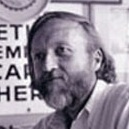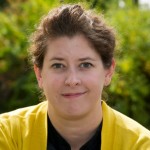Page 100 • (2,739 results in 0.065 seconds)
-

: Rebecca and Aidan are discussing an experiment in front of a fume hood wearing chemistry lab gear] – I thrive in an environment like that, usually. [video: Rebecca is sitting in a chemistry classroom with a whiteboard and projector screen in the background. There is a front and side video angle. Text on the bottom of the screen reads, ”Rebecca Smith ‘24, Chemistry and Environmental Studies Double Major”] Rebecca: After high school, I was a little confused on what I wanted. I wasn’t quite sure. [video
-
standardized criteria for classifying chemicals and mixtures according to their health, physical, and environmental hazards. HAZARD CLASSIFICATION (SEE APPENDIX B) Hazard Classification is the process of assigning a chemical or mixture to a hazard or danger category based on its health and physical hazards. Physical hazards are the properties of a gas, liquid or solid that could adversely affect you or the workplace in a physical way, such as a fire or explosion. Health hazards are determined by the
-
, Hospitality Services & Campus Restaurants is also focusing efforts towards organic purchasing decisions for products such as eggs milk as well as specific meats such as chicken and beef. We are continually finding new ways to improve our sustainability efforts. The main area we focus on are: Minimizing our Environmental Impact Composting & reducing the amount of waste we send to the landfill. Through prudence, determination and research, we have reduced the waste sent to the landfill by an astounding
-

microorganisms, minuscule life forms, wield a vital influence over our planet’s climate. They manage crucial components like carbon and oxygen within the vast oceans and the atmosphere.Over the summer, Professor Angie Boysen and her dedicated team, Lydia Flaspohler ’25, a biology major, and Ryan Fisher ’24, a biology major and environmental studies minor, embarked on a mission to unravel the secrets of these microorganisms. Professor Boysen, Flaspohler and Fisher aimed to understand the compounds these
-

on plant genetic engineering in agriculture and an internship with Washington State University, where she researched tree fruit physiology in response to changing environmental conditions. After graduation, Davis plans to begin a master’s and PhD program at University of British Columbia to study plant science — specifically how high-value horticulture crops are impacted by different environmental conditions. We caught up with her to reflect more on her PLU experience.Tell us about your capstone
-
career and professional training sessions on topics such as writing abstracts, résumé writing, cultivating interview skills, crafting an effective LinkedIn profile and more. During this 10 week program students will: Earn $20/hour and receive transportation and food stipends Gain real-world lab experience, such as enrolling patients in studies, pipetting, using lab equipment, analyzing data and learning research methodologies Attend career and professional training sessions Build mentor relationships
-

, 1912-2002. He has co-edited three books in as many genres, most recently (with Warren Slesinger) Spreading the Word: Editors on Poetry (The Bench Press, 2001). He has worked as a literary editor for nearly 35 years, first with The Devil’s Millhopper from 1976-1983, and since then with The Georgia Review, where he currently serves as editor. He lives in Athens, Georgia and serves as Editor-in-Residence in the Rainier Writing Workshop. Editor in Residence. Mentor. Workshops and classes in
-
the Arts and Artist Trust, a Pushcart Prize, and grants from Artist Trust and the Seattle Office of Arts and Cultural Affairs. She holds an MFA in creative writing from the PLU Rainier Writing Workshop and was awarded an Emerging Writer’s Fellowship by The Writer’s Center in Bethesda in 2010. Flenniken is a co-editor and president of Floating Bridge Press, a non-profit press dedicated to publishing Washington State poets. Read Previous PLU named leader in recycling Read Next Engineer turned poet
-

Christine Nicolai Administrative and Communications Coordinator she/her/hers Phone: 253-535-7400 Email: nicolacs@plu.edu Office Location: Morken Center for Learning & Technology - 252 Rieke Science Center - 158 Office Hours: (On Campus) Mon - Fri: 8:00 am - 12:30 pm (On Campus) Mon - Fri: 1:30 pm - 5:00 pm Professional Education M.F.A., Creative Writing, Eastern Washington University, 2009 B.A., English, Eastern Washington University, 2006
Office HoursMon - Fri: 8:00 am - 12:30 pmMon - Fri: 1:30 pm - 5:00 pm -
Avoiding Plagiarism×Click the image to watch a video of the Plagiarism presentation. Or, click the link below to access a powerpoint version! Plagiarism Presentation – Failproof Compatibility Helpful Links Short & Sweet Handout on Identifying & Avoiding Plagiarism (from Utah Valley University) Harvard Guide: How to Avoid Plagiarism Council of Writing Program Administrator’s Definition of Plagiarism Purdue Owl: Activities on Avoiding Plagiarism Purdue Owl: Activities on Understanding/Defining
Do you have any feedback for us? If so, feel free to use our Feedback Form.


